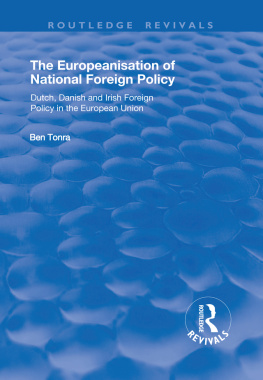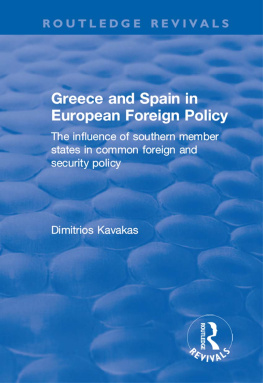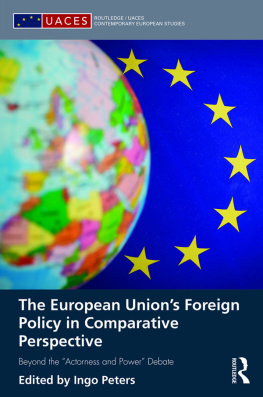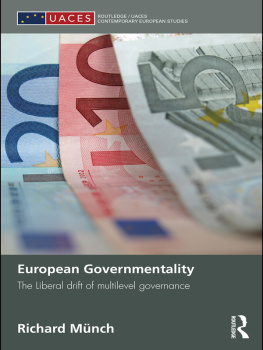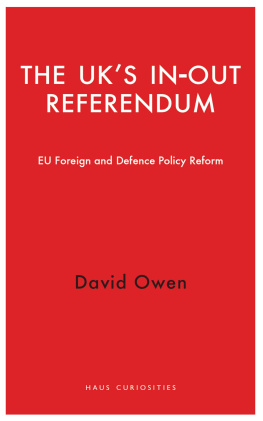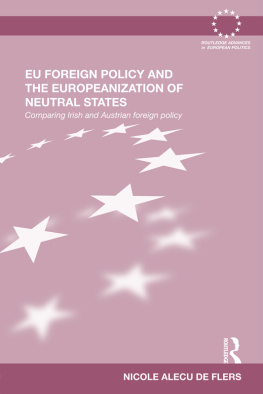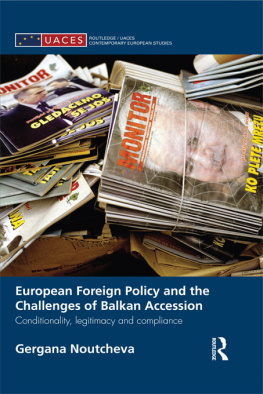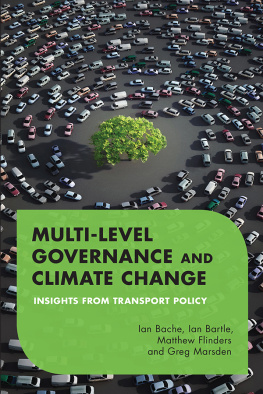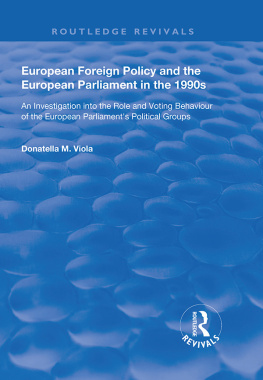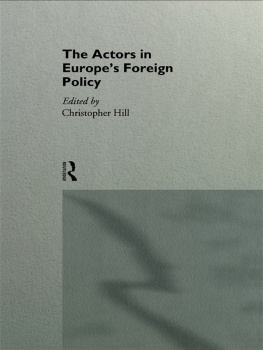Elke Krahmann - Multilevel Networks in European Foreign Policy
Here you can read online Elke Krahmann - Multilevel Networks in European Foreign Policy full text of the book (entire story) in english for free. Download pdf and epub, get meaning, cover and reviews about this ebook. year: 2017, publisher: Taylor & Francis, genre: Politics. Description of the work, (preface) as well as reviews are available. Best literature library LitArk.com created for fans of good reading and offers a wide selection of genres:
Romance novel
Science fiction
Adventure
Detective
Science
History
Home and family
Prose
Art
Politics
Computer
Non-fiction
Religion
Business
Children
Humor
Choose a favorite category and find really read worthwhile books. Enjoy immersion in the world of imagination, feel the emotions of the characters or learn something new for yourself, make an fascinating discovery.

- Book:Multilevel Networks in European Foreign Policy
- Author:
- Publisher:Taylor & Francis
- Genre:
- Year:2017
- Rating:5 / 5
- Favourites:Add to favourites
- Your mark:
- 100
- 1
- 2
- 3
- 4
- 5
Multilevel Networks in European Foreign Policy: summary, description and annotation
We offer to read an annotation, description, summary or preface (depends on what the author of the book "Multilevel Networks in European Foreign Policy" wrote himself). If you haven't found the necessary information about the book — write in the comments, we will try to find it.
Multilevel Networks in European Foreign Policy — read online for free the complete book (whole text) full work
Below is the text of the book, divided by pages. System saving the place of the last page read, allows you to conveniently read the book "Multilevel Networks in European Foreign Policy" online for free, without having to search again every time where you left off. Put a bookmark, and you can go to the page where you finished reading at any time.
Font size:
Interval:
Bookmark:


2 Park Square, Milton Park, Abingdon, Oxon OX14 4RN
711 Third Avenue, New York, NY 10017, USA
Product or corporate names may be trademarks or registered trademarks, and are used only for identification and explanation without intent to infringe.
The publisher has gone to great lengths to ensure the quality of this reprint but points out that some imperfections in the original copies may be apparent.
The publisher has made every effort to trace copyright holders and welcomes correspondence from those they have been unable to contact.
ISBN 13: 978-1-315-19719-7 (ebk)
- BDI Federation of German Industries
- CDU Christian Democratic Union
- CFSP Common Foreign and Security Policy
- CND Campaign for Nuclear Disarmament
- COCOM Coordinating Committee for Multilateral Export Controls
- CSCE Conference for Security and Cooperation in Europe
- CSU Christian Social Union
- DGB German Labour Union Association
- DIHT German Chambers of Commerce and Industry
- DTI Department of Trade and Industry
- EAPC Euro-Atlantic Partnership Council
- EC European Community
- EDIG European Defence Industry Group
- EEC European Economic Community
- EU European Union
- FDP Free Democratic Party
- INF Intermediate-Range Nuclear Forces
- MoD Ministry of Defence
- MPs Members of Parliament
- NACC North Atlantic Cooperation Council
- NATO North Atlantic Treaty Organization
- NPG Nuclear Planning Group
Font size:
Interval:
Bookmark:
Similar books «Multilevel Networks in European Foreign Policy»
Look at similar books to Multilevel Networks in European Foreign Policy. We have selected literature similar in name and meaning in the hope of providing readers with more options to find new, interesting, not yet read works.
Discussion, reviews of the book Multilevel Networks in European Foreign Policy and just readers' own opinions. Leave your comments, write what you think about the work, its meaning or the main characters. Specify what exactly you liked and what you didn't like, and why you think so.

